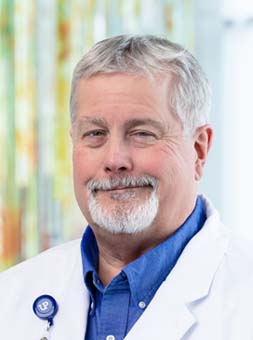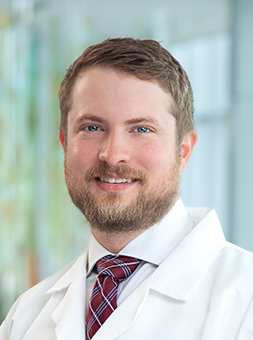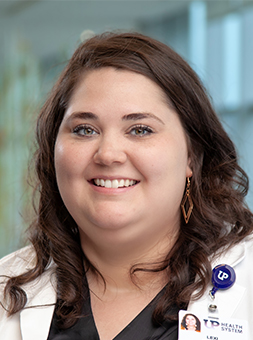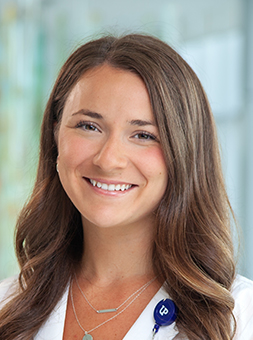Lung Cancer
Lung Cancer Center
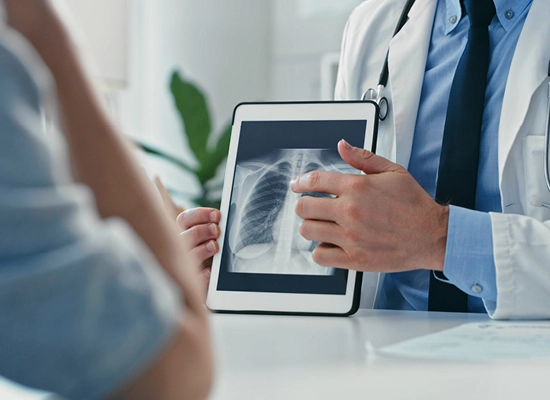 UP Health System – Marquette is the only American College of Surgeons (ACS) Commission on Cancer (CoC)-accredited
facility in Michigan’s Upper Peninsula. The lung cancer care team includes board-certified specialists from multiple fields
who work together to provide safe, thoughtful, coordinated care.
The team specializes in pulmonology, lung imaging, interventional radiology, pathology, surgery, medical oncology and
radiation therapy. Patients receive streamlined care using advanced, state-of-the-art equipment and expertise—from
diagnosis through treatment.
UP Health System – Marquette is the only American College of Surgeons (ACS) Commission on Cancer (CoC)-accredited
facility in Michigan’s Upper Peninsula. The lung cancer care team includes board-certified specialists from multiple fields
who work together to provide safe, thoughtful, coordinated care.
The team specializes in pulmonology, lung imaging, interventional radiology, pathology, surgery, medical oncology and
radiation therapy. Patients receive streamlined care using advanced, state-of-the-art equipment and expertise—from
diagnosis through treatment.
Screening Services
UP Health System – Marquette is accredited by the American College of Radiology (ACR) and is a designated Lung Cancer Screening Center. Low-dose screening chest computed tomography (CT) is used to screen eligible patients for early detection of lung cancer. When a suspected abnormality or incidental finding is identified, care coordination is provided by the lung navigator to help expedite care.
A lung nodule clinic is available for patients with suspicious findings on imaging, allowing for a prompt and thorough workup. This includes formal staging and diagnosis of lung cancer.
Diagnosis
We offer advanced technology to diagnose and stage lung cancer. Using innovations in pulmonology and robotic bronchoscopy, our pulmonary team can locate cancer in even the smallest lung nodules, allowing physicians to begin treatment sooner. Earlier diagnosis supports faster, more effective care for patients.
Lung biopsies can be performed using several methods, including bronchoscopy, mediastinoscopy, and endobronchial ultrasound-guided transbronchial needle aspiration (EBUS), a robotic navigational bronchoscopy. Our center also offers CT-guided biopsies, performed by our interventional radiology team.
Patient Coordination
Once a diagnosis is confirmed, patient care coordination continues through our lung navigator. The navigator attends consultations with the surgeon, medical oncologist and radiation oncologist to support continuity of care. They also provide patients with education, resources and treatment coordination to help expedite care.
Surgery
UP Health System – Marquette offers advanced robotic-assisted lung surgery using the da Vinci Surgical System, the only program of its kind within 250 miles. The on-site, board-certified thoracic surgeon has more than a decade of experience with the technology and performs a variety of procedures, including wedge resection, segmentectomy and lobectomy. During surgery, lymph node sampling is conducted to allow the pathology team to identify the type of cancer present. This information helps guide a personalized and effective treatment plan for each patient, providing high-quality care close to home.
Medical Oncology
Board-certified medical oncologists follow evidence-based guidelines from the National Comprehensive Cancer Network (NCCN) and the American Society of Clinical Oncology (ASCO) when prescribing individualized treatment plans. These may include chemotherapy, targeted therapy and immunotherapy.
The team includes chemotherapy-certified nurses, a physician assistant, a nurse practitioner and dedicated support staff such as social workers and financial counselors to assist patients throughout their treatment journey.
Radiation Oncology
Board-certified radiation oncologists prescribe radiation therapy using a variety of techniques, including intensity-modulated radiation therapy (IMRT), stereotactic body radiation therapy (SBRT), stereotactic radiosurgery (SRS) and 3D conformal radiation therapy.
A team of certified radiation therapists, dosimetrists, physicists and nurses delivers advanced treatment to patients with precision and care.
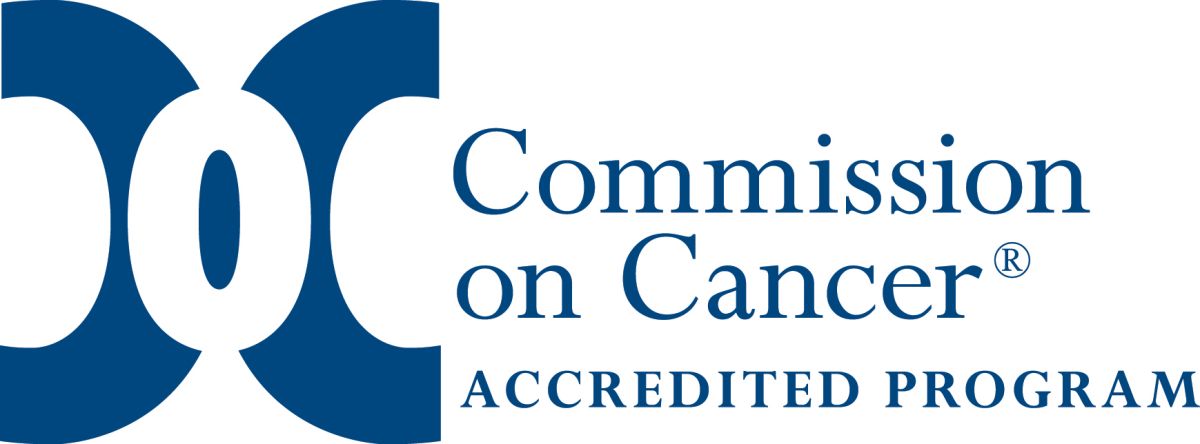
Resources
We provide safe, effective treatment for all patients. A multidisciplinary tumor board meets weekly to discuss individual cases and guide treatment planning. Our center also offers case-by-case support services, including social work, genetic counseling, support groups, dietary consultation, cancer rehabilitation and financial counseling.
How to Refer
Once a suspicious lung finding is identified on a CT scan, the primary care provider can refer the patient to the Pulmonology Lung Nodule Clinic, where a pulmonologist will determine the appropriate biopsy strategy and workup. Referrals can be faxed to 833.916.2275 or call 906.449.1210 with questions.
Our team works closely with referring providers to coordinate ongoing care for patients in our community.
Our Providers
Find A Provider
Want to schedule an appointment with one of our providers?


